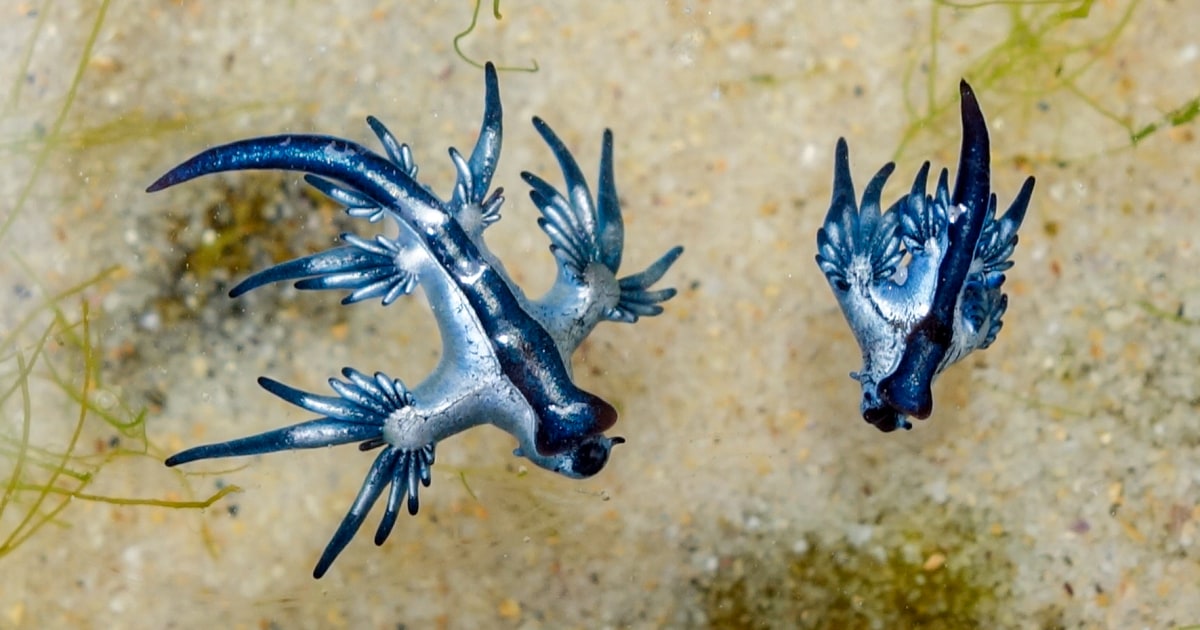The Mallorca weather is becoming more stable and fire jellyfish more frequent. A marine biologist explains what bathers need to consider on the holiday island.
Mallorca – When summer is in the starting blocks, life on the popular holiday island of Mallorca, the only true one, becomes more and more colourful. Recently, cult restaurants celebrated their launch and more and more tourists are drawn to the numerous beaches. The initial euphoria can inspire a holiday in Mallorca.
However, there is one catch: fire jellyfish!
Expert warns of fire jellyfish on Mallorca's beaches
The sea off the Balearic Islands changes colour temporarily in May: fire jellyfish then make their way in large flocks. The german-Mallorcan marine biologist Daniel Ottmann explains that the jellyfish species reproduces mainly in spring and is therefore in high season in May.
An expert warns of fire jellyfish in the sea off Mallorca, which would have their high season. © Thomas Müller/dpa/Archivbild
"However, it depends on the currents whether they come close to the beach," Ottmann told the Mallorca Zeitung. So it's worth keeping your fingers crossed that the beach section of your destination will be spared from a jellyfish plague. Or of a mystical "sea creature" that researchers have spotted.
High season of fire jellyfish - this is how to proceed with a sting
Despite all the caution when it comes to bathing fun, a sting cannot always be avoided. Even slight touches of the almost transparent nettle threads of fire jellyfish quickly become noticeable. According to geo.de, small poisonous charges get into the skin during a sting. This can result in burning pain, nausea, vomiting and, in extreme cases, even respiratory and cardiovascular problems. If you are affected, you should behave as follows:
Fire jellyfish on Mallorca's beaches: Do not treat stings with urine
But it's not just the fire jellyfish in the sea off Mallorca that need to be watched out for: the sailing jellyfish can be seen at any time of the year. But this is harmless. According to Ottmann, the fried egg jellyfish are on the move in autumn, which would look dangerous, but are not. In contrast to some animals in Germany, which are dangerous and unknown at the same time.
0
Also Read
"Maddie McCann is found": forensic scientist presents three theories in the missing person case
READ
Austrians discover German border supermarkets: "At this price, Rewe should have been bankrupt long ago"
READ
Motorist showers climate glue with yoghurt – other activists paralyze air traffic
READ
Fatal effects of tourism: Natural wonder in Yellowstone Park is probably destroyed
READ
Austria's exceptional alpinist falls 60 meters to his death at the Brenner Pass – son has to watch misfortune
READ
Fancy a voyage of discovery?
My Area
Less common are the lung jellyfish. However, these would also not sting. If you are generally not allergic to the animal, you do not need to fear any danger anyway. Not even if it comes to a bite by a jellyfish. By the way, the myth that urine would alleviate the pain of the sting persists. According to the ADAC, however, there are no indications and no valid studies that would prove this. (Felina Wellner/Yannick Hanke)











/cloudfront-eu-central-1.images.arcpublishing.com/prisa/KMEYMJKESBAZBE4MRBAM4TGHIQ.jpg)

